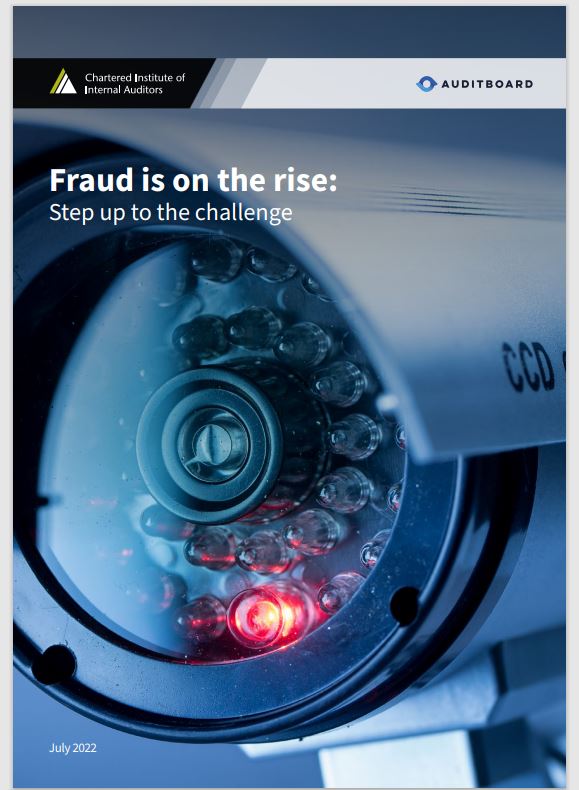Huom! Löydät tämän artikkelin sivujen 18-23 suomennoksen jäsenosiosta.
Kun olet sisäänkirjautunut: ks suomennos kohdasta Jäsenalue – Ladattavat tiedostot.
Foreword
As we write this report, the war in Ukraine rages, inflation in the UK has hit 9%, and the cost of living crisis deepens. Organisations are also grappling with a myriad of other business-critical risks such as supply chain disruption, staff retention, and cyber threats just to name a few. This means that temptations and opportunities for fraud have increased, and fraudsters will take advantage of the situation using ever more sophisticated tools to commit their crimes. So, now more than ever, organisations and internal audit functions must be on the front foot to tackle fraud risk.
Organisations that have not traditionally regarded fraud as a high-risk priority must re-evaluate how they manage and communicate the risk. It is apparent from our research that, although the generic risk of fraud has been recognised as important, the response to it is inconsistent. Our key messages for organisations and internal audit teams are:
I)Internal audit functions should take a much more proactive role in the fight against fraud. In periods of heightened volatility, they should constantly revisit the elements of the fraud triangle (motivation, opportunity, rationalisation) to try and anticipate fraud. They will then be able to really challenge the board and senior management on where the risks may occur.
II)Organisations should conduct regular fraud risk assessments that consider the internal and external factors impacting the business. This is a fundamental step that should not be forgotten.
III)Boards and senior management have an important role to play in developing a positive fraud culture within the organisation, underpinned by the right tone from the top. Internal audit can support this effort by helping raise awareness around fraud and acting as a trusted advisor to the board and senior management on areas that need improvement.
IV)Organisations and internal audit functions should be better prepared for the increased scrutiny and accountability on fraud from government, regulators, and the public. They should proactively look out for new rules and regulations on fraud that are coming down the track, and assess how they might impact their business.
We hope that this report acts as a useful prompt and encourages organisations and internal audit functions to raise their game in relation to fraud. As we gear up for more turbulent months and years ahead, now is the time to jump in with both feet and get ahead of the curve.
John Wood, Chief Executive Officer, Chartered Institute of Internal Auditors
Richard Chambers, Senior Internal Audit Advisor, AuditBoard and Former President and CEO of IIA Global
The article was first published here.
Read the whole article from the PDF attached.
Avaa koko näytössä

